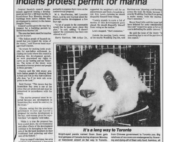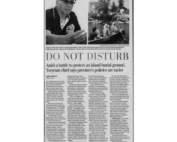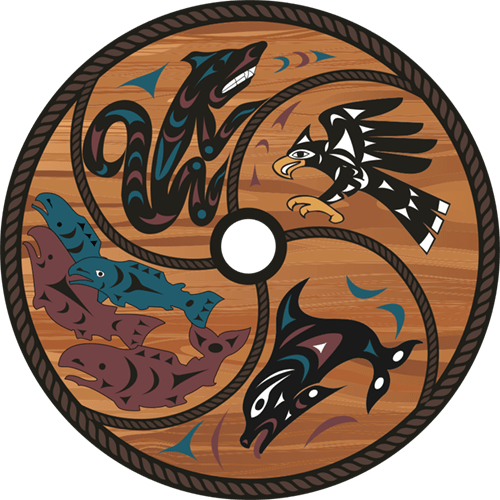Removal of Invasive Deer a first step toward forest restoration
By a narrow vote, the property owners on Sidney Island have decided to move forward with the eradication of all fallow deer on Sidney Island beginning this fall.
This permanent elimination of the fallow deer on Sidney Island is a last resort effort to stop the devastating impact they’ve caused the delicate ecosystem.
Fallow deer are an invasive species introduced in the area by Europeans in the 1900s. The deer indiscriminately eat the island’s vegetation and have left the island devoid of medicines and food bulbs which are vital to the health of the unique ecosystem of Sidney Island. Fallow deer have effectively created an inhospitable environment for migratory birds and native black-tail deer.
The Director of Operations at the W̱SÁNEĆ Leadership Council, Gordon Elliott explains, “The fallow deer pretty much eat everything and populate so quickly, they don’t leave the natural deer species any chance for a healthy habitat.”
Through the Sidney Island Ecological Restoration Project, the W̱SÁNEĆ community has been working alongside Parks Canada, Pauquachin First Nation, the Province of BC, the Sidney Island community, and Islands Trust Conservancy to replant “natural food bulbs and medicinal plants inside deer-safe enclosures.” Sidney Islanders have also removed over 15,000 fallow deer over the last 30 years.
The SḰŦÁMEN QENÁȽ,ENEȻ SĆȺ (the Sidney Island Ecological Restoration Project) also includes a hunting program that provides an annual period of exclusive hunting access to First Nations people every year. W̱SÁNEĆ senior hunters such as Carl Olsen used this period as an opportunity “to teach W̱SÁNEĆ youth to hunt in a way that aligns with W̱SÁNEĆ tradition and culture,” while reducing the fallow deer population.
The option of relocation was also considered. Ultimately, however, a decision was made to eliminate the fallow deer population entirely. According to W̱SÁNEĆ Leadership Council Representative and Tsawout Nation Hereditary Chief Eric Pelkey, removing the fallow deer in order for the native species to thrive “is a great occasion for our people.” Elliott indicates the eradication is a “sad process, but there is no choice.”
Kate Humble, Superintendent of Gulf Islands NPR, shared that “Parks Canada is committed to working together with Indigenous Nations, as well as local communities and other interest holders to ensure the long-term health of the Coastal Douglas-fir ecosystem within Gulf Islands National Park Reserve.”
“Forest ecosystems are important, and Sidney Island is home to a globally-unique Coastal Douglas-fir ecosystem, which can only be found along the southern coast of British Columbia and parts of Washington and Oregon.”
“Because European fallow deer compete with native black-tailed deer, and eat native plants, they prevent local Indigenous harvesters from accessing traditional foods and medicines. The eradication of fallow deer is one step towards healing some of the ecological impacts resulting from colonization, and will be paired with active repopulation of native food and medicine plants.” The process will move forward in the Fall or Winter of 2023 in partnership with W̱SÁNEĆ knowledge holders from the W̱SÁNEĆ Leadership Council’s Archeological and Environmental Committees and other project partners to ensure we’re protecting important ecological and cultural features.
Humble shared that “[p]roject partners are working together to finalize an operational plan and complete a Detailed Impact Assessment prior to beginning the operation.” Additionally, project partners will work together to “remove invasive plants and re-plant native and culturally-significant plants, including foods and medicines.”
Elliott assures the process will include ceremony and culture, and that the resulting meat from the fallow deer will be distributed to the community.
While the removal of the deer is tragic, it will ultimately facilitate the restoration of the ecosystem to its state before the colonial introduction of the invasive species, allowing native medicine and food to flourish.










